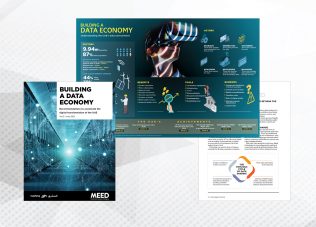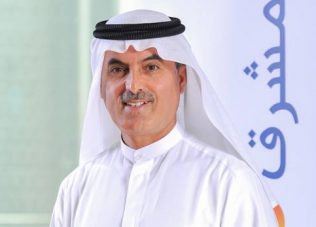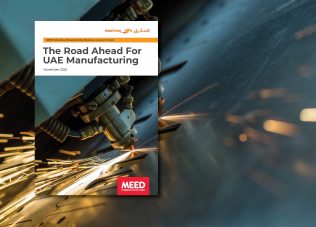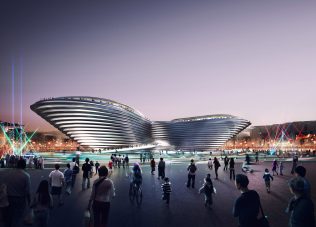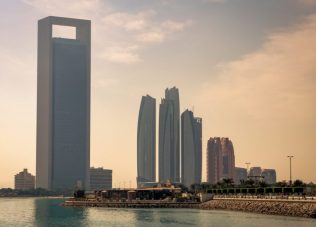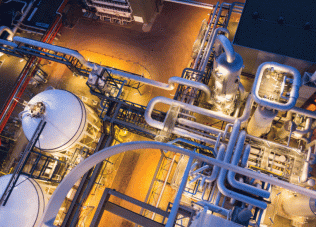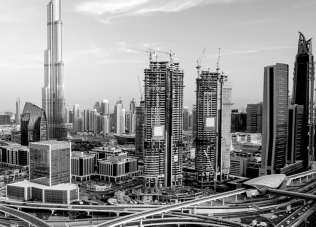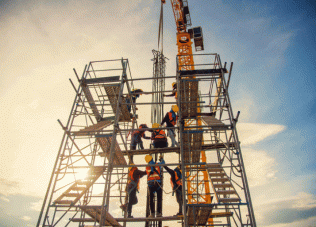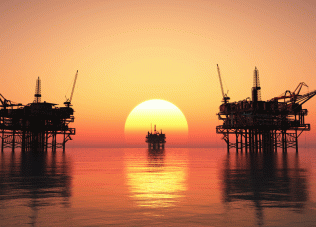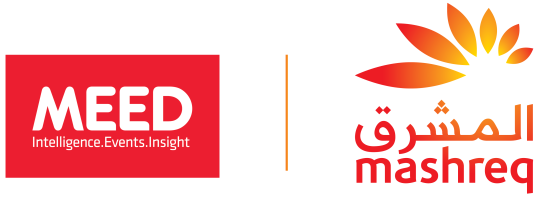Adnoc eyes diversified growth
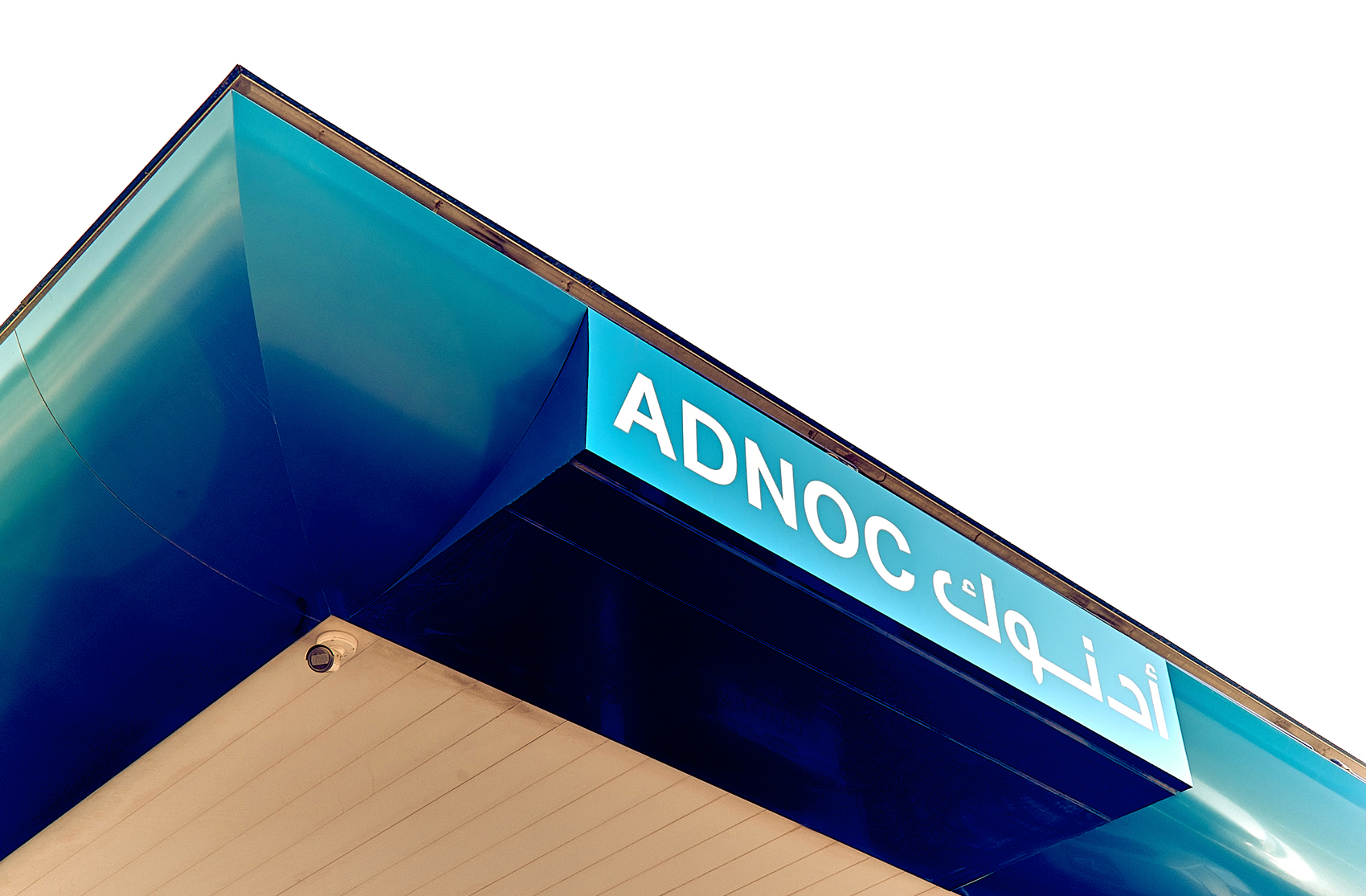
As oil production cuts boost confidence in the energy sector, Abu Dhabi National Oil Company (Adnoc) is pushing ahead with bullish plans to expand its refining capabilities, add value to its downstream products and form fresh partnerships with investors.
To achieve this, Adnoc is planning a capital expenditure of more than AED400bn ($109bn), approved by the Supreme Petroleum Council on 27 November, over the next five years.
As Abdulmunim Saif al-Kindy, head of Adnoc’s upstream directorate, notes: “If you look at Adnoc’s stated objectives, you get a clear view of where the money will be directed. We are going to raise production capacity and sustain it. We are also embarking on some unconventional work, and we are going downstream in both refining and petrochemicals.”
Abdulaziz Abdulla al-Hajri, head of the firm’s downstream directorate, continues: “More than 40 per cent of this expenditure will be in downstream. We are expanding our refining capacity by 60 per cent, and tripling our petrochemicals capacity from 4.5 million tonnes a year (t/y) today to 14.4 million t/y by 2025.”
Ruwais refinery
This capacity includes the plans for a new refinery at Ruwais that will be “targeted at 600,000 barrels a day (b/d), to expand our processing capacity to around 1.2 or 1.25 million b/d,” according to Al-Hajri.
Adnoc’s refining capacity currently stands at 922,000 b/d, out of which about 650,000 b/d is crude processing.
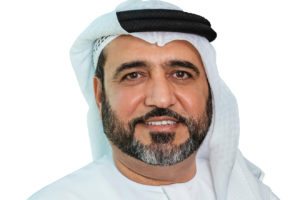
Abdulaziz Abdulla al-Hajri
Adnoc’s petrochemical expansion efforts, meanwhile, include plans by Borouge, its joint venture with Borealis, to develop the Borouge 4 and polypropelene-5 (PP5) projects, which will raise capacity at the Ruwais complex for higher-margin plastics.
The Borouge 4 unit will increase the polyolefin capacity at Ruwais from 4.5 million t/y to more than 10 million t/y, making it the largest integrated polyolefin complex in the world.
“We are moving into the pre-feed [front-end engineering and design] and the selection of the processes and technologies,” says Al-Hajri. “We should start the feed by the middle of 2018.”
PP5 unit
Adnoc is in the tendering phase for its PP5 unit, which will use propylene from the existing Ruwais refinery to produce about 0.5 million t/y of polypropylene. The engineering, procurement and construction contract should be awarded by mid-2018.
The group also intends to develop 4 million t/y of aromatics capacity: “1.5 million t/y as part of the expansion of the current production of gasoline and other aromatics, and another roughly 3 million t/y from the new refinery,” says Al-Hajri.
The ultimate aim is for Ruwais to produce seven of the nine basic petrochemicals upon its completion.
According to the downstream director, these seven products support more than “90 per cent of all petrochemical and chemical manufacturing” in the world. “The integration opportunities make this project economically attractive to international investors, and we are already in discussions,” says Al-Hajri.
Strategic partners
Aside from Borouge 4, Adnoc’s partnerships include the planned development of a linear alkyl benzene complex with Spain’s Cepsa; and Elixier, an industrial gases joint venture with Germany’s Linde.
“Our main aim for the partnerships is smart growth and smart investments,” says Al-Hajri. “We are looking for partners who will help us add value, not only capital; partners who have the right technical knowledge and experience, and the right market access and security.
Adnoc is now engaged in discussions with several international companies interested in partnering with the firm on the development of the Ruwais refinery, in an open-ended equity arrangement that could see it offer up to a 40 per cent stake in Adnoc Refining.
“For the refinery, the best thing will be an integrated refinery and a single partner that will come in to expand the existing refinery with us and then add the new refinery as well,” says Al-Hajri.
Downstream investments
Adnoc also intends to look for opportunities to invest in downstream facilities in key target markets. “Our focus is and always will be the UAE,” he says. “But having said that, we will be evaluating opportunities to take our product downstream in key markets whether directly or indirectly – to be closer to our customer and find a captive outlet for our crudes.
“This will help us develop resilience and security against any changes in the market,” he says, adding that Adnoc International will be cooperating with other Abu Dhabi entities, such as Mubadala, to evaluate opportunities in countries including China and the emerging markets of southeast Asia.
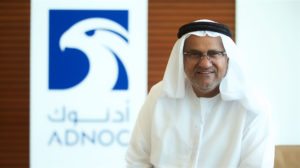
Abdulmunim Saif al-Kindy
The outstanding 60 per cent portion of the $109bn capital expenditure will be directed to Adnoc’s exploration and extractive capacity in its upstream business, where it is on track to expand its oil production capacity from 3 million b/d to 3.5 million b/d by the end of 2018.
Included in this target is an increase in production capacity at the Upper Zakum oil field, from just short of 750,000 b/d to about 1 million b/d.
Asked whether Adnoc is developing more capacity than it needs to hit its target of 3.5 million b/d, Al-Kindy says: “We are developing a capacity above our target – not really as sustainable production, but to cater for planned or unplanned disturbances or shutdowns.”
Energy security
The group is also refocusing on the exploitation of its untapped gas resources, both as a means of improving the UAE’s energy security, and as an opportunity in the context of falling subsidies.
As Al-Kindy notes: “We have always had an objective for self-sustenance of the UAE. But we also sized the conventional and unconventional opportunities, and developed a case for getting a fair price for our gas that, once achieved, would propel the gas developments from being commercially non-viable to being commercially viable.
“So the picture has changed from one of inability to meet the terms of the market to one where these can be developed and brought to the market at a commercial price.”
In terms of energy security, “we are aiming to be self-sufficient by around 2032,” he adds.

